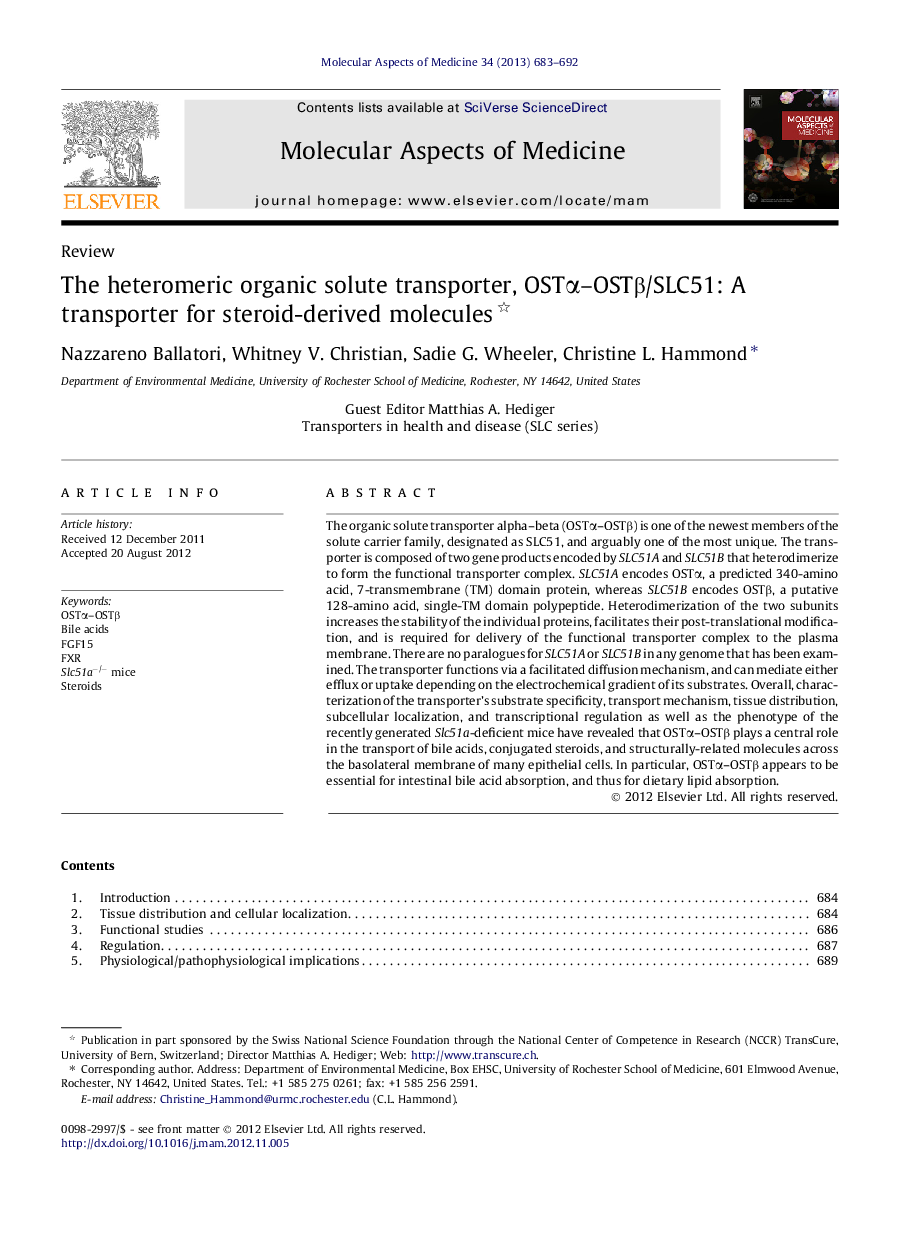| Article ID | Journal | Published Year | Pages | File Type |
|---|---|---|---|---|
| 8341602 | Molecular Aspects of Medicine | 2013 | 10 Pages |
Abstract
The organic solute transporter alpha-beta (OSTα-OSTβ) is one of the newest members of the solute carrier family, designated as SLC51, and arguably one of the most unique. The transporter is composed of two gene products encoded by SLC51A and SLC51B that heterodimerize to form the functional transporter complex. SLC51A encodes OSTα, a predicted 340-amino acid, 7-transmembrane (TM) domain protein, whereas SLC51B encodes OSTβ, a putative 128-amino acid, single-TM domain polypeptide. Heterodimerization of the two subunits increases the stability of the individual proteins, facilitates their post-translational modification, and is required for delivery of the functional transporter complex to the plasma membrane. There are no paralogues for SLC51A or SLC51B in any genome that has been examined. The transporter functions via a facilitated diffusion mechanism, and can mediate either efflux or uptake depending on the electrochemical gradient of its substrates. Overall, characterization of the transporter's substrate specificity, transport mechanism, tissue distribution, subcellular localization, and transcriptional regulation as well as the phenotype of the recently generated Slc51a-deficient mice have revealed that OSTα-OSTβ plays a central role in the transport of bile acids, conjugated steroids, and structurally-related molecules across the basolateral membrane of many epithelial cells. In particular, OSTα-OSTβ appears to be essential for intestinal bile acid absorption, and thus for dietary lipid absorption.
Keywords
Related Topics
Life Sciences
Biochemistry, Genetics and Molecular Biology
Biochemistry
Authors
Nazzareno Ballatori, Whitney V. Christian, Sadie G. Wheeler, Christine L. Hammond,
